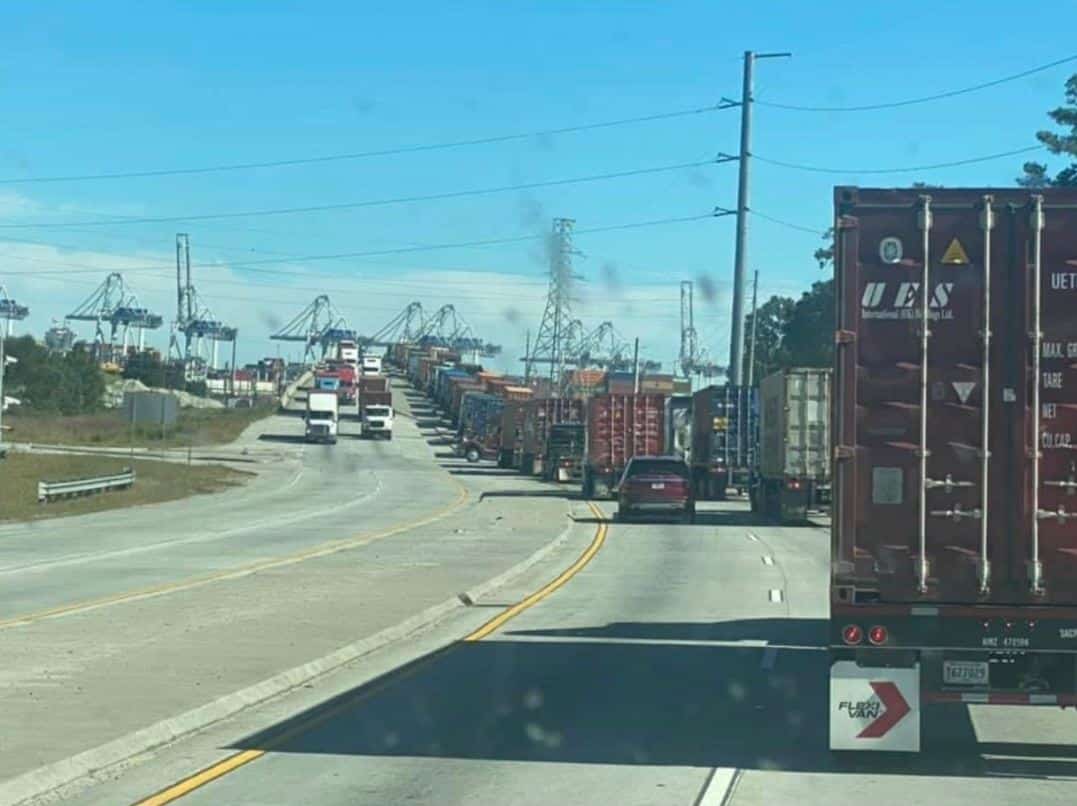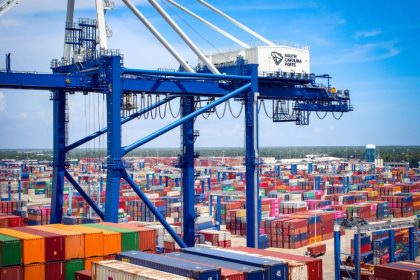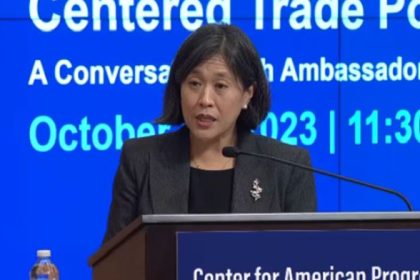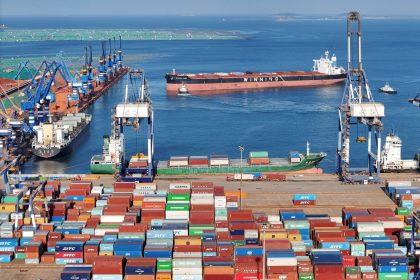Blue Dog Coalition Shares Supply Chain Hurdles, Solutions During Roundtable

SAN ANTONIO — Members of the Blue Dog Coalition hosted a virtual roundtable discussion on Wednesday over impediments to the national supply chain as well as what’s being done to solve them.
The discussion featured input from Gene Seroka, executive director of the Port of Los Angeles, Ed Gresser, vice president and director for trade and global markets at the Progressive Policy Institute, Joshua Beiter, vice president of operations for Lundequam Development, and Joan Eliasek, senior vice president of customer experience at McKesson Corp. The speakers discussed their experiences with supply chain issues and their impact on each of their respective stakeholder constituencies.
While labor shortages and high consumer demand have prolonged pandemic-induced supply chain issues, Seroka said private sector interests have picked up the slack in some areas. Some “artificial” shortages have been caused by a lack of shipping containers needed to move consumer products out of warehouses, but numerous factors have led to efficiency problems hindering the movement of cargo.
“Fifty-three percent of our available truck appointments every day go unused at the Port of Los Angeles,” Seroka said during the discussion. “We’re open 19 hours a day on average. … The move to 24/7 is great, [and] we’ve got to get other private sector interests to come along with us to get more efficiency and more cargo moving through the system. But honestly, people did not need their cargo as fast as some of their folks representing those companies would have told you.”
Before factoring in penalty fees, around 60% of cargo transported to the port would sit for nine days or longer. While some family-owned businesses and small importers desperately needed expedited shipments to keep afloat, many larger businesses were simply stocking up in preparation for supply chain issues leading to more shortages.
While lawmakers have scrambled to push out legislation to counter domestic supply chain problems, Rep. Lou Correa, D-Calif., said pandemic-induced hindrances have revealed weaknesses with the global supply chain as well. Legislation like the United States Innovation and Competition Act and the Ocean Shipping Reform Act endorsed by the Blue Dog Coalition has passed in the Senate and House respectively, but both have yet to reach President Joe Biden’s desk for signing.
“While supply chain resilience has long been a topic in Washington, D.C., these disruptions have revealed the urgency of shoring up critical supply chain issues,” Correa said during the discussion. “The disruptions in our supply chain, of course, have cost us and resulted in higher costs for our constituents. And in some cases, a lot of our local taxpayers have had to make hard choices between buying food and buying gasoline.”
Officials from the National Retail Federation reported holiday retail sales exceeded expectations, as was previously reported in The Well News. Information-sharing systems like the one used by the Port of Los Angeles and underpinned by data from the U.S. Customs and Border Protection have yielded promising results for suppliers hoping to capitalize on the NRF’s expectations.
Seroka said more could still be done to shore up looming inefficiencies at other shipping ports.
The Port of Los Angeles is still the only port in the nation using CBP data overlaid with international shipping manifests. The U.S. Innovation and Competition Act could stimulate progress by directing the Department of Commerce to facilitate the development and implementation of comprehensive regional technology strategies under a supply chain resiliency and crisis response program. Further, the Ocean Shipping Reform Act would require ocean common carriers to report total import and export tonnage to the Federal Maritime Commission each quarter.
“One of the best things that happened was [working] with the government to help expedite those products, bring them in [and] make them available,” Eliasek said during the discussion.
“I think there has been some progress with onshoring products so that more medical products are made here in the United States,” she added. “I think that is absolutely something we’d like to continue to see.”
Reece can be reached at [email protected]























